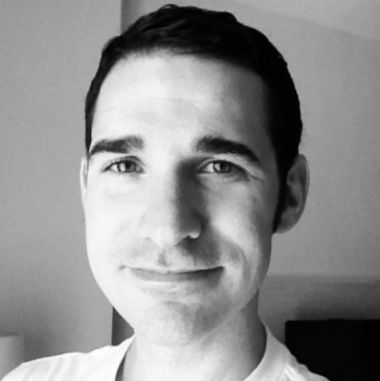Striving and repeatedly failing to cure Ebola is brutal, says a clinician

Patients who suffered from the deadly Ebola virus experience pain like no other, but Dr Craig Spencer said that the experience was just as difficult for people in the medical field because "striving and repeatedly failing to cure Ebola is brutal too."
He shared his harrowing experience with the New England Journal of Medicine and described the Ebola treatment centre in Guéckédou, Guinea as the most challenging place he has ever worked.
Craig said that Ebola was frightening becase doctors know so little about it. "We cannot explain exactly what it does to our bodies, nor tell patients who survive it how it may affect them in the future," he said. "This microscopic virus, an invisible enemy, made me uneasy."
Because of this, Craig would often wake up sweating in the middle of the night with his heart racing. He became paranoid that the disease might infect him too, and he started diagnosing himself with gastritis, amebiasis, and peptic ulcer disease. "Though I understood the connection between psychological stress and physical pain, I'd never experienced it like this," he admitted.
However, things were different when he was working at the treatment centre. Any concern for himself took a backseat and all he could think about was treating his patients. "I was fuelled by compassion and the immense challenge of caring for patients with Ebola. I'd never felt so deeply that my decisions could have a measurable impact on other people's lives," he shared.
During his last day, he felt a certain calm knowing that he would no longer be exposed to the deadly virus. Little did Craig realise that an even bigger ordeal will be facing him when he returned to New York City. Not only did the doctor suffer from paranoia, but he also dealt with a heavy bout of depression as well.
"I became fearful of the incredibly remote possibility that I could become sick and infect my fiancée, the person I love the most. Touching others and shaking hands — forbidden actions throughout West Africa — still made me uncomfortable. Twice a day, I held my breath in fear when I put a thermometer in my mouth. I did all this worrying well before I ever had a fever or showed any symptoms of Ebola," he said.
His fears were not unfounded since he entered Bellevue Hospital as NYC's first Ebola patient on October 23, 2014. Craig said that he even felt relieved when he learned of the news, as it was better having the disease briefly than constantly fearing it.
But while he battled with the disease, people began to villify him. "My activities before I was hospitalised were widely reported and highly criticised. People feared riding the subway or going bowling because of me. The whole country soon knew where I like to walk, eat, and unwind. People excoriated me for going out in the city when I was symptomatic, but I hadn't been symptomatic — just sad," he said.
People labelled him a fraud, a hipster, and a hero. But Craig simply said that he was a person who answered a call for help and was lucky enough to survive.
He understood the fear people felt, but it did not help that the media and politicians heightened people's fears by retracing his steps and debating whether or not Ebola could be transmitted through a bowling ball.
"Little attention was devoted to the fact that the science of disease transmission and the experience in previous Ebola outbreaks suggested that it was nearly impossible for me to have transmitted the virus before I had a fever," he lamented.
Other medical practitioners who came home after battling Ebola were given the same treatment as him. Craig only hopes that people will learn to overcome their fear of the virus and open their hearts to help instead of condemning those who did.
"When we look back on this epidemic, I hope we'll recognise that fear caused our initial hesitance to respond — and caused us to respond poorly when we finally did. I know how real the fear of Ebola is, but we need to overcome it," he said. "We all lose when we allow irrational fear, fuelled in part by prime-time ratings and political expediency, to supersede pragmatic public health preparedness."











